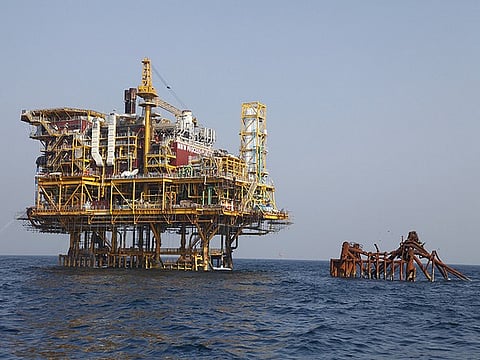

New York: Oil prices fell for a third straight day on Thursday after the European Union paused on an immediate ban of Russian coal and other energy imports, providing itself some breathing room amid the global energy crisis.
Adding to the downdraft in oil was the worst coronavirus outbreak in Shanghai in two years that has forced a lockdown in China's second largest city and triggered concerns about demand in the world's second oil consuming country.
Brent, the global benchmark for oil, settled down 49 cents, or 0.5%, at $100.58 per barrel, after a Thursday low of $98.50. Last week, Brent fell 13% last week for its biggest weekly decline since April 2020 after finishing the first quarter up 39%.
New York-traded US crude benchmark West Texas Intermediate (WTI) settled down 20 cents, or 0.2%, at $96.03. It hit an intraday low of $93.86 earlier.
WTI settled below the key $100 support last week as it fell about 13%, just like Brent, for its worst week since April 2020. That came despite a 33% rally in the first quarter.
The European Union's top diplomat, Josep Borrell, told a NATO meeting that new EU measures against Russia, including a ban on coal, might be passed by Friday and the bloc would discuss imposing an oil embargo next.
However, the coal ban would take full effect from mid-August, a month later than initially planned, Borrell said. Crude prices fell for a third straight day after the Paris-based International Energy Agency said it will release 60 million barrels from the reserves of its members into the open market, adding to an earlier reserves release of 180 million barrels announced by the United States.
The combined 240 million barrels would be added to the market over a six-month period, resulting in a net inflow of 1.33 million barrels per day. That would be more than triple the monthly increments of 400,000 barrels per day in output that global oil producers under the Saudi-controlled and Russian-steered OPEC+ alliance have been doing. OPEC+ is keeping at least four million barrels of regular daily supply needed by consumers off the market to ensure that crude prices stay at above or around $100 per barrel, which has been the norm since the US and EU sanctions imposed on Russia for its special military operation in Ukraine.
Separately, the delivery of some 3 million barrels per day of Russian oil exports is being delayed by sanctions, with some being denied altogether.
Visit news.dtnext.in to explore our interactive epaper!
Download the DT Next app for more exciting features!
Click here for iOS
Click here for Android